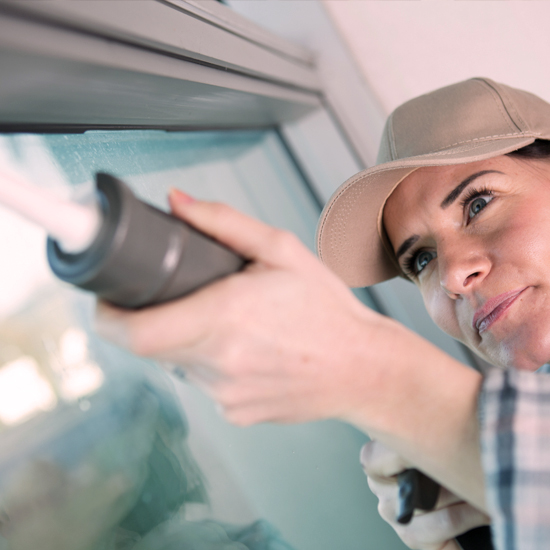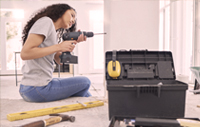
Owning a home is a major accomplishment, but it comes with ongoing responsibilities. Learning basic DIY maintenance skills can save you money, prevent costly repairs and give you a sense of pride in caring for your investment. Whether you’re a new homeowner or have owned your home for years, these essential skills will help keep your living space in top condition.
According to a 2025 survey by Frontdoor, when DIYers get stuck on home projects, 73% turn to YouTube for help, while 60% search Google for solutions. With so many digital resources at our fingertips, there’s never been a better time to build your DIY confidence! Let’s explore five essential maintenance skills every homeowner should master:
1. Basic Plumbing
That dripping faucet isn’t just annoying — it’s wasting water and potentially causing damage. Learning to fix a leaky faucet or unclog a drain can save you hundreds in plumber costs. Most clogs can be resolved with a plunger or drain snake, and leaky faucets often just need a new washer. Just remember the golden rule: always turn off the water supply before starting any plumbing repair!
2. Simple electrical work
Don’t let the word “electrical” intimidate you. Knowing how to reset a circuit breaker, replace a light fixture or swap out a faulty switch are valuable skills that can save you time and money. Just make sure to turn off power at the breaker box before attempting any electrical work — safety first!
3. Seasonal maintenance
Think of seasonal maintenance as preventive medicine for your home. Cleaning gutters twice yearly (spring and fall) prevents water damage to your foundation. Changing HVAC filters monthly keeps your system running efficiently and improves your indoor air quality. These routine tasks take just a little time but prevent much bigger problems down the road.
4. Interior repairs
Those little holes from picture frames or that outdated paint
5. Know your home’s systems
Every homeowner should locate and learn to operate their main water shutoff valve — this knowledge can prevent catastrophic flooding during emergencies. Also, test smoke and carbon monoxide detectors monthly and replace batteries at least once a year. These simple habits can literally save lives.
Dos and don’ts of DIY home maintenance
Dos:
- Regularly inspect your home for water leaks and moisture issues
- Clean gutters in spring and fall to prevent clogs
- Test smoke and carbon monoxide detectors monthly
- Learn the limits of your skills and know when to call professionals
- Document all maintenance and repairs for future reference
Don’ts:
- Don’t attempt electrical work without shutting off power first
- Don’t skip seasonal maintenance tasks
- Don’t use the wrong tools for a job — invest in basic, quality tools
- Don’t drill or nail into walls without checking for hidden wiring or pipes
- Don’t ignore small problems until they become major repairs
Remember that effective home maintenance is about consistency. Addressing minor issues before they become costly problems is key to maintaining your home’s value and functionality over time.
What DIY home maintenance skills have you mastered? Share your tips and experiences with the Shop Talk community!

Did you know?
The average homeowner spends 1% to 4% of their home’s value on maintenance and repairs each year. For a $300,000 home, that’s $3,000 to $12,000 annually. Regular DIY maintenance can significantly reduce these costs, potentially saving you thousands of dollars over time.
